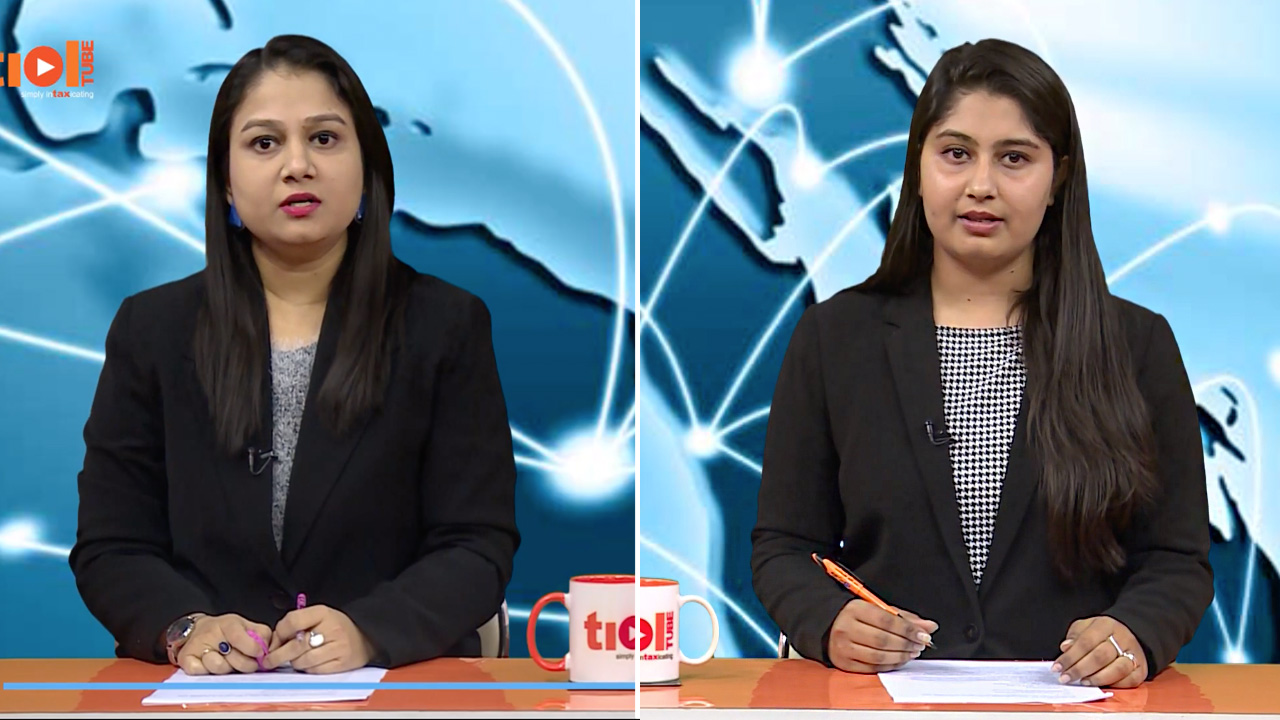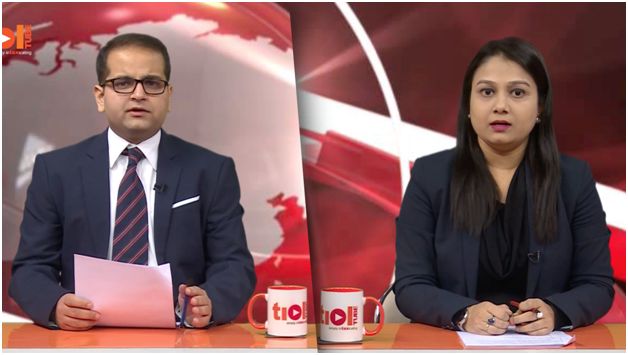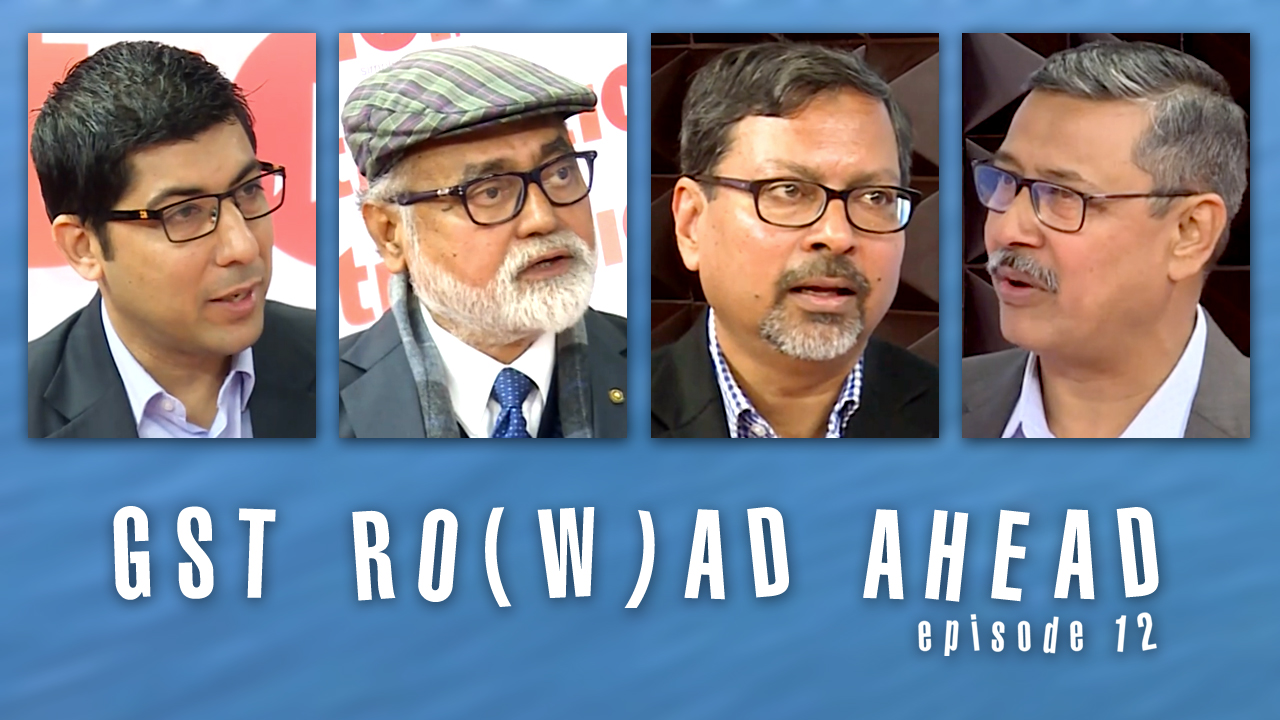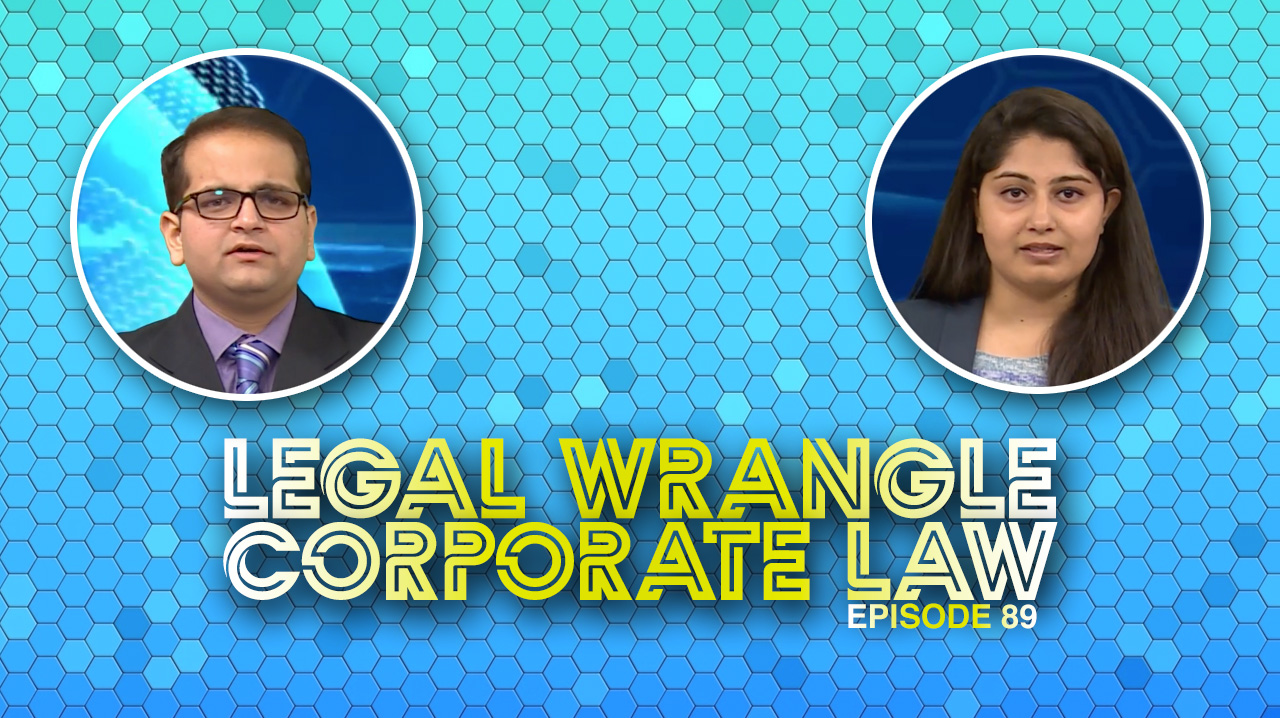SERVICE TAX
2019-TIOL-329-CESTAT-MUM + Case Story
Idea Cellular Ltd Vs CCE
ST - Contravention of rule 6(3)(c) of CCR, 2004 - utilization of credit in excess of 20% of the amount of service tax payable on output service - Rule 6(3)(c) of CCR, 2004 and Rule 6(1) of Service Tax Rules, 1994 should be read harmoniously - notwithstanding the excess use of credit, the consequence cannot lead to recovery of the credit, since being availed as per law and admissible to the appellant - assessee-appellant at best could be liable to pay interest on the excess amount of CENVAT credit utilized in discharging the service tax in lieu of cash - such view is more or less akin to eligibility of credit on capital goods spread over to two financial years, allowing the assessee to avail 50% of the admissible credit in each financial year - there is no legal support in the argument of the appellant that while calculating the liability of interest, it should be computed taking into account both excess utilisation as well as less credit availed during the period in dispute - no justification in imposing penalty or directing recovery of the credit, since the said Clause (c) of Rule 6(3) of CCR, 2004 restricts utilization of credit to the extent of 20% and not on availing of cenvat credit - matter remanded to the adjudicating authority only for the limited purpose to calculate the amount of interest payable by the appellant for excess of the utilization of CENVAT credit in a particular month i.e. on month-to-month basis for the entire period in question - appeal disposed of: CESTAT [para 9 to 14]
Appeal disposed of: MUMBAI CESTAT
2019-TIOL-321-CESTAT-BANG + Case Story
Bangalore Golf Club Vs CCT
ST - Club or Association Service - In view of the mutuality of interest and in view of the activities of the club, if the club provides services to its Members that would not constitute service to others - However, principle of mutuality of interest is not applicable to guest/non-members - For the sake of computation of charges collected from non-members and the tax payable on the same, matter is remanded to the original authority: CESTAT [para 4, 5]
- Matter remanded: BANGALORE CESTAT
2019-TIOL-320-CESTAT-HYD
Hindustan Shipyard Ltd Vs CCE, C & ST
ST - The assessee is a Government of India owned public sector undertaking, engaged in building of ships and maintenance - They have received a contract from Indian Navy for submarine retrofitting - In terms of contract, they have received some amounts on which they are paying service tax under Management, Maintenance or repair services - In addition, they received other amounts on which the Revenue sought to collect service tax - As far as amounts received by assessee from the Indian Navy for the purpose of upgrading their facilities at the shipyard are concerned, they are not linked to the present contract and hence can only be termed mobilization advances not linked to any signed contract for rendering services - Of course, in future Indian Navy may award the assessee contracts and the amounts now paid will be adjusted against such contracts - At this stage, it is not clear as to what contracts will be signed and whether they will be liable to service tax during that period - Therefore, no ground found to charge service tax on mobilization advance received by assessee - Respectfully, the decision of Tribunal in case of SMS Infrastructure Ltd. - 2016-TIOL-2396-CESTAT-MUM was followed and hold that no service tax is payable on the amount received towards mobilization advance of the contract from the Indian Navy - As far as the amounts received towards reimbursement of income tax and VAT paid including the TDS paid by assessee and reimbursed by Indian Navy are concerned, these are in the nature of reimbursable expenses and hence cannot be included in value of taxable services as has been held by Supreme Court in case of Intercontinental Consultants & Technocrats Pvt. Ltd. - 2018-TIOL-76-SC-ST - As far as amounts received towards RTDs are concerned, these are clearly goods received by assessee on behalf of Indian Navy and were imported by filing a bill of entry and no service tax can be levied on goods - In conclusion, impugned order is set aside: CESTAT
- Appeal allowed: HYDERABAD CESTAT
2019-TIOL-319-CESTAT-MAD
Hotel Priya Vs Commissioner of GST & CE
ST - Assessee is engaged in supply of food to M/s. Mitsubishi - During verification, it was noticed that assessee is engaged in providing catering service to M/s. Mitsubishi from January 2005 onwards - The assessee was raising fortnightly bills on M/s. Mitsubishi for the sale of food for which payments were received by assessee through cheques - It was also noticed from the accounts of M/s. Mitsubishi that the cost of transportation of food was borne by them - According to department, the said activity would fall within outdoor catering service and SCN was issued proposing to demand service tax along with interest along with interest and for imposing penalties - The main contention put forward by assessee is that the activity is only sale of foods involving delivery at the premises of M/s. Mitsubishi - It is also stated by them in their reply to SCN that M/s. Mitsubishi has engaged casual labourers for serving food to the employees/workers - In fact, original authority has held the activity to be outdoor catering service for mere reason that the brother of assessee R. Suresh or some other worker of hotel also go to the company to oversee the activity - The department is of the view that since some person from the hotel goes to the company the activity falls within the definition of outdoor catering - If one person goes to the premises of company to check whether the food is sufficient, it can be overseeing the activity of sale of food - But this cannot be considered as catering to the service of the customer - In the decision of Tamilnadu Kalyana Mandapam Association - 2004-TIOL-36-SC-ST , the Supreme Court had occasion to consider the difference between service rendered by outdoor caterer and the service rendered in a restaurant / hotel - It is very much clear assessee is merely delivering the food to the company and there is no service element involved - The activity does not fall within the definition of outdoor catering service - The demand therefore cannot sustain - The impugned order is set aside: CESTAT
- Appeal allowed: CHENNAI CESTAT
2019-TIOL-318-CESTAT-KOL
CST Vs Asian Hotels Ltd (Hyatt Regency)
ST - The assessee is registered with Service Tax Department and is providing services under various categories - During Financial Year 2003-04 to 2006-07, assessee have availed "Management Consultancy Service" provided from outside India and received by them in India, and have paid service tax under reverse charge mechanism as per provisions of Section 66A of FA, 1994 and have taken cenvat credit of service tax - The SCN was issued to assessee alleging that Rule 3 of CCR, 2004 did not allow availment of cenvat credit towards payment of service tax under reverse charge mechanism - Adjudicating Authority allowed utilization of Cenvat Credit of service tax paid under reverse charge mechanism by relying on Circular F.No. 354/148/2009-TRU - It is the case of assessee that Rule 6(5) of CCR, 2004 starts with nonobstante clause and is not subject to restriction placed by Rule 6(3) of Rules and accordingly they were correct in utilizing the said credit towards payment of their service tax liability - The Board's Circular on Service Tax being F.No. 137/203/2007-CX-4 supports their contention - The utilization of credit availed under Rule 6(5) of Rules shall be allowed in full unless used exclusively for providing exempted services - Further, in cases where assessee is providing both exempted and taxable output services, there is no restrictions provided by Rule 6(5) for utilization of such credit - The issue is no more res-integra as has been observed in Tribunal's decision in case of V.M.Salgaonkar & Bros. Pvt. Ltd. - 2008-TIOL-443-CESTAT-MUM - No reasons found to interfere with impugned order and accordingly it is sustained: CESTAT
- Appeal dismissed: KOLKATA CESTAT
CENTRAL EXCISE
2019-TIOL-317-CESTAT-DEL
TS Tech Sun Rajasthan Pvt Ltd Vs CCE & CGST
CX - The assessee is a manufacturer of automobile components and is situated in Neemrana where they are entitled to VAT subsidy under Rajasthan Investment Promotion Policy-2003 - The Department noticed that they have not paid duty on value including the investment subsidy against Entitlement Certificate sanctioned under said policy - Accordingly, duty demands were confirmed against assessee by original authority - In addition, he also levied penalty equal to 50% of such duty - The issue of liability of payment of excise duty on subsidy amount has been decided in favour of assessee vide the order of Tribunal in Final Order dated 11.04.2018 - By following the said order, there can be no liability for payment of excise duty on VAT subsidy amount - Consequently, the liability for penalty also does not arise: CESTAT
- Appeal allowed: DELHI CESTAT
2019-TIOL-316-CESTAT-AHM
Moontex Dys And Ptg Woks Vs CCE & ST
CX - The assessee is engaged in processing of Man Made Fabrics on job works basis out of Grey Fabrics supplied by various principle manufacturers - It was revealed that assessee on receiving the Grey Fabrics have not accounted for and after process the Grey Fabrics cleared the same without payment of duty - From the above finding of the Tribunal order the issue of retraction filed by assessee was to be re-considered - Other evidences were not discussed by Tribunal - The Commissioner after considering the Tribunal order and overall evidences decided that assessee have cleared Man Made Fabrics - Even if, retraction of Shri. Manharlal R. Bhachkaniwala is considered as acceptable, there are ample of evidences such as the Note Book recovered from assessee's premise under Panchanama which was further corroborated by statement of Merchant Manufacturer who admitted that they have received processed Man Made Fabrics from assessee to whom the Gray Fabrics was supplied - Revenue could laid their hands only in respect of 22 Merchant Manufacturer while 27 merchant's manufacturer statement could not be recorded - In this position, the demand against assessee in respect of all the Merchant Exporter cannot be confirmed - The assessee have raised an issue that the duty was recovered from Merchant Manufacturer, if it is so the demand should stand reduced to this extent - On the same clearance, there cannot be demand from Merchant Manufacturer as well as assessee - The confiscation of Land, Building, plant and Machinery is not justified, therefore, the confiscation is set aside - The total demand should be made only on quality of Man Made Fabrics relates to 22 Merchants Manufacturer, the duty if paid by Merchant Manufacturer, the same may be reduced from our re-quantified demand against assessee - Matter is remanded to adjudicating authority for re-quantification of demand: CESTAT
- Matter remanded: AHMEDABAD CESTAT
CUSTOMS
2019-TIOL-315-CESTAT-BANG
Coastal Farms Vs CC
Cus - The assessee filed Bill of entry through their customs broker, for the import of a consignment of L-Methionine 99% Feed Grade falling under the CTH 29304000 - The customs duty was paid considering merit rate of 25.26% - Subsequently, the assessee realized that the actual duty payable was to be determined at concessional rate of duty of 17.36% as per Customs Notification No.46/2011-Cus, - Therefore, the assessee claimed refund of the excess customs duty paid and filed refund claim - However, the Assistant Commissioner rejected the refund claim on the ground that the assessment of the Bill of Entry was on the basis of assessee's own assessment, which had attained finality since it was not challenged by the assessee - Secondly, the claim was hit by bar of unjust enrichment - On appeal, the Commr.(A) sustained the findings in the O-i-O.
Held - The goods were imported from Malaysia in terms of the ASEAN-India Free Trade Area Preferential Agreement - Thus, they were eligible for concessional rate of duty - But the assessee inadvertently paid excess duty - Moreover, as there was no dispute regarding classification or valuation or description of the imported goods, therefore, there is no need to challenge the assessment - The original authority had rejected the refund claim based on doctrine of unjust enrichment, but the Commr.(A) not discuss this issue - The certificates produced by the assessee, to certify that the amount of duty paid was shown as receivables under the head Customs duty receivables in the books of accounts of the assessee, were not considered - Hence the O-i-A is not not sustainable in law & case warrants remand to the original authority: CESTAT (Para 2,6)
- Case remanded: BANGALORE CESTAT









